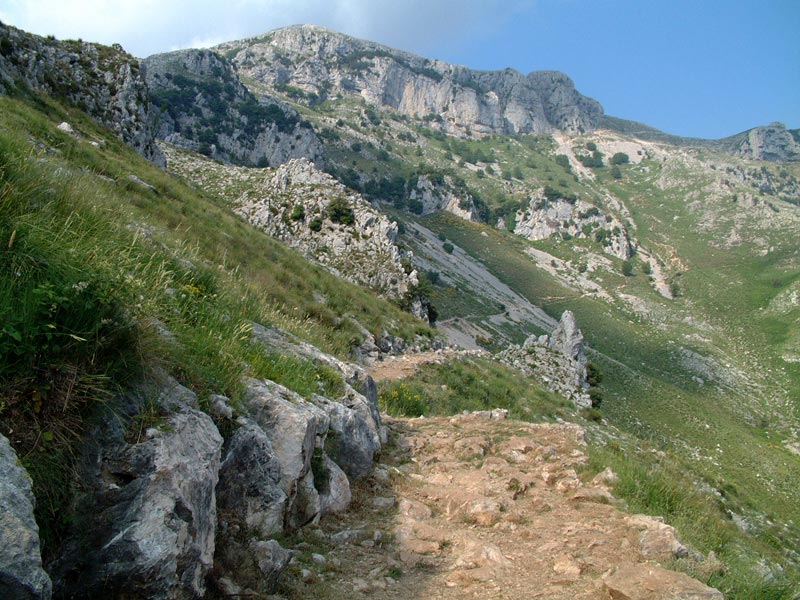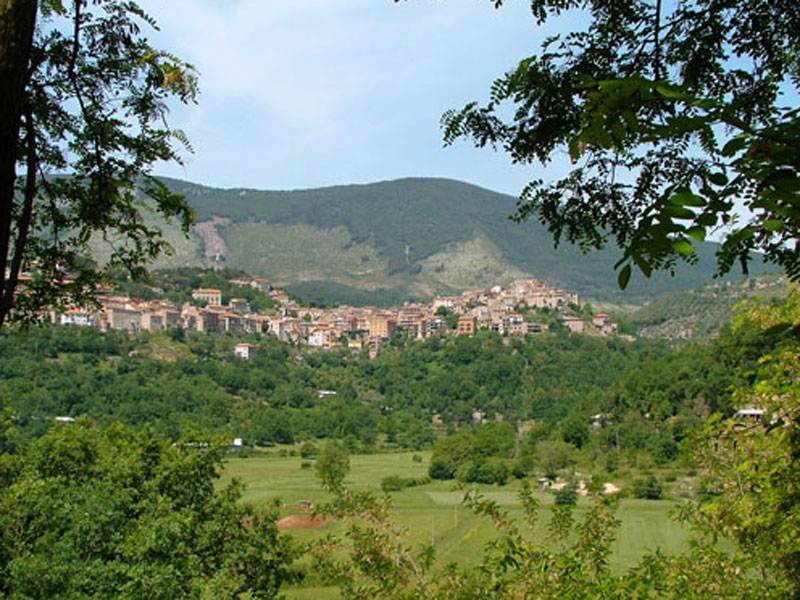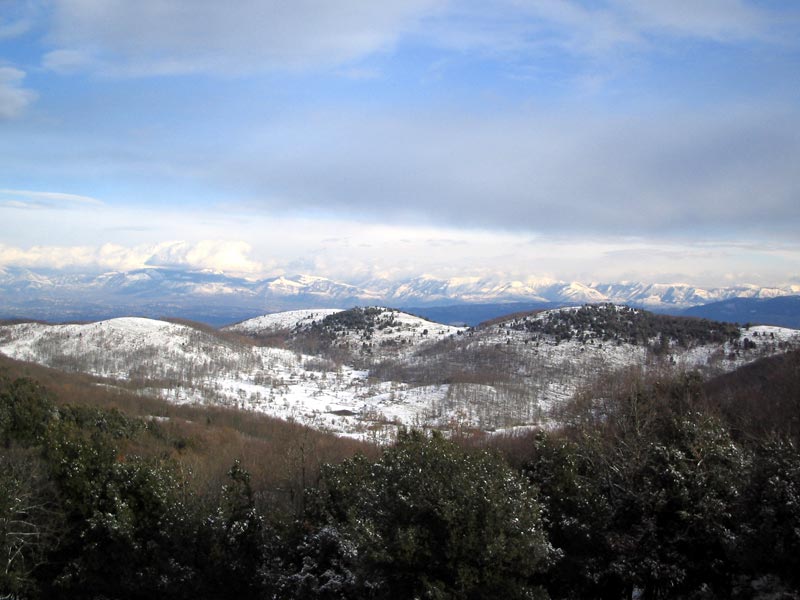Protected Area
Identity Card
- Monti Aurunci Nature Park:
- Land Surface Area: 19'374.00 ha
- Lower altitude (m): 30
- Higher altitude (m): 1'533
- Regions: Lazio
- Provinces: Frosinone, Latina
- Municipalities: Ausonia, Campodimele, Esperia, Fondi, Formia, Itri, Lenola, Pico, Pontecorvo, Spigno Saturnia
- Establishment Measures: LR 29 06/10/1997
- PA Official List: EUAP1035
- Park Authority: Ente Regionale Parco dei Monti Aurunci
- Further managed Protected Areas:
- Zona Speciale di Conservazione Forcelle di Campello e di Fraile
- Zona Speciale di Conservazione Monte Petrella (area sommitale)
- Zona Speciale di Conservazione Monte Redentore (versante sud)
- Zona Speciale di Conservazione Parete del Monte Fammera
- Monumento Naturale Mola della Corte - Settecannelle - Capodacqua
- Monumento Naturale Montecassino
Geology
Aurunci Mountains, together with Lepini Mountains and Ausoni Mountains, represent the south-western section of the carbonate platform "Laziale-Abruzzese", a geological structure extending for about 1,230 square meters with the same lithological and morphological features. The current geological system of this area is the result of a long series of events occurring in a period of time lasting 150 million years, from the Jurassic period to the Paleocene period.
Further information (Italian text)
The Landscape
The Park territory always offers to tourists, hikers, or nature-lovers emotions and special meetings with the local nature, history, and traditions. Steep paths, hairpin bends, and roads crossing the mountain give the opportunity to discover a heterogeneous landscape, variable, steep and bare, wild and luxuriant, sloping down to the sea and standing out on rocky cliffs decorated with caves and dolines.
Further information (Italian text)
Nature
Monti Aurunci Park boasts a heterogeneous territory with an altimetric profile going from the plain at about 30m asl to the 1,535m asl of Mt. Petrella, rising not far from the coast. The chain of Aurunci Mountains has a mysterious charm, and marks the end of the most important mountain system of Preappennino Laziale, including Lepini Mountains and Ausoni Mountains. Aurunci Mountains are the one and only mountain chain of Lazio directly facing the Tyrrhenian Sea with summits of over 1,500 meters.
Further information (Italian text)
Flora
The Park territory includes a great variety of environments, each characterized by a particular vegetation. Beech tree woodlands cover the summit of Mt. Faggeto and the northern slopes of Mt. Putrella or Fossa del Lago, where you can admire one of the most imposing beech tree specimens of the Park. The undergrowth is characterized by the holly and the daphne of the beech tree woodland. Valle Gaetana plateau is dominated by Turkey oaks and big-size apple and pear trees. Chestnut trees welcome visitors at the beginning of Campo di Venza, while Downy oak forests, with their undergrowth enriched by the endemic wild privet, surround Sant'Onofrio plateau and Valle Vona plateau.
Further information (Italian text)
Fauna
The heterogeneous landscape of Monti Aurunci Park represents the ideal environment for various animal species. In spring, the meadows, the forests, and the cultivated areas are populated by many insects, including two species of lepidoptera (Bianconera italiana and Clouded Apollo), common butterflies on the slopes of Mt. Altino and Mt. Revole. The southern section of the Park is a crossroads of the important spring migratory routes and represents a stop for many migratory birds, like the Golden Oriole, the Cuckoo, and the Swallows. Nocturnal birds include the Nightingale and the European Nightjar, but also birds of prey like Little Owls, the Eagle Owl, the Barn Owl, the Scops Owl, and the Eurasian Tawny Owl. There are also several diurnal birds of prey like the Peregrine and the Buzzard, usually nesting on the steep slopes of Mt. Sant'Angelo and Mt. Fammera.
Further information (Italian text)








